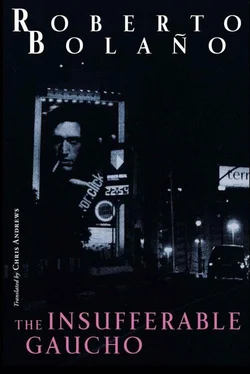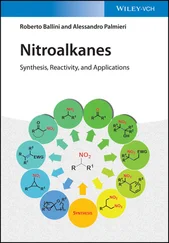His lunch, which he ate on his own in an enormous, empty dining room while reading a book under the absent-minded gaze of the elderly maid, and watched by the black-and-white eyes of his deceased wife, looking out from photographs in ornate silver frames, was light: soup, a small portion of fish and mashed potato, some of which he would leave to go cold. In the afternoon, he helped his children with their homework, or sat through Cuca’s piano lessons in silence, or Bebe’s English and French classes, given by two teachers with Italian surnames, who came to the house. Sometimes, when Cuca had learned to play a piece right through, the maid and the cook would come to listen, and the lawyer, filled with pride, would hear them murmur words of praise, which struck him at first as excessive, but then, on reflection, seemed perfectly apt. After saying good night to his children and reminding his domestic staff for the umpteenth time not to open the door to anyone, he would go to his favorite café, on Corrientes, where he would stay until one at the very latest, listening to his friends or friends of theirs discussing issues that he would have found supremely boring, he suspected, had he known anything about them, after which he would go home, where everyone, by that time, was asleep.
Eventually the children grew up. First Cuca got married and went to live in Rio de Janeiro; then Bebe started writing and indeed became a highly successful writer, which was a source of great pride for Pereda, who read each and every page his son published. Bebe went on living at home for a few more years (where else could he have had it so good?), after which, like his sister, he flew the coop.
At first the lawyer tried to resign himself to solitude. He had an affair with a widow, went on a long trip through France and Italy, met a girl called Rebeca, and finally contented himself with organizing his huge, chaotic library. When Bebe came back from the United States, where he had spent a year teaching at a university, Pereda had aged prematurely. Bebe was worried and tried to spend as much time as he could with his father, so sometimes they went to the movies or the theater, where the lawyer would usually fall into a deep sleep, and sometimes Bebe dragged him along (though he only had to drag him at first) to the literary gatherings held in a café called El Lapiz Negro, where authors basking in the glory of some municipal prize held forth at length about the nation’s destiny. Pereda, who never opened his mouth at those gatherings, began to take an interest in what his son’s colleagues had to say. When they talked about literature, he was completely bored. In his opinion, the best Argentine writers were Borges and his son; any further commentary on that subject was superfluous. But when they talked about national and international politics, the lawyer’s body grew tense, as if under the effect of an electric current. From then on, his daily habits changed. He began to get up early and look through the old books in his library, searching for something, though he couldn’t have said what. He spent his mornings reading. He decided to give up wine and heavy meals, because he realized they were dulling his intellect. His personal hygiene also underwent a change. He no longer spruced himself up when he was going out. He soon stopped taking a daily shower. One day he went to read the paper in a park without putting on a tie. His old friends barely recognized this new Pereda as the lawyer they had known, who had been irreproachable in every respect. One day he woke up feeling more agitated than usual. He had lunch with a retired judge and a retired journalist, and laughed all the way through the meal. Afterward, while they were drinking cognac, the judge asked him what he found so funny. Buenos Aires is sinking, Pereda replied. The ex-journalist thought that the lawyer had gone crazy and recommended some time by the seaside: the beach, that invigorating air. The judge, less given to speculation, simply thought that Pereda had gone off on a tangent.
A few days later, however, the Argentine economy collapsed. Accounts in American dollars were frozen, and those who hadn’t moved their capital (or their savings) offshore suddenly discovered that they had nothing left, except perhaps a few bonds and bank bills — just looking at them was enough to give you goosebumps — vague promises inspired in equal parts by some forgotten tango and the words of the national anthem. I told you so, said the lawyer to anyone who would listen. Then, accompanied by his cook and maid, he stood in long lines, like many other inhabitants of Buenos Aires, and entered into long conversations with strangers (who struck him as utterly charming) in streets thronged with people swindled by the government or the banks, or some other culprit.
When the President resigned, Pereda was there among the protestors as they banged their pots and pans. It wasn’t the only demonstration. Sometimes it seemed that the elderly had taken control of the streets, old people of all social classes, and he liked that, although he didn’t know why; it seemed like a sign that something was changing, that something was moving in the darkness, although he was also happy to join in the wildcat strikes and blockades that soon degenerated into brawling. In the space of a few days, Argentina had three different Presidents. It didn’t occur to anyone to start a revolution, or mount a military coup. That was when Pereda decided to go back to the country.
Before leaving, he explained his plan to the maid and the cook. Buenos Aires is falling apart; I’m going to the ranch, he said. They talked for hours, sitting at the kitchen table. The cook had been to the ranch as often as Pereda, who in the past had always said that the country was no place for a man like him, a cultivated family man, who wanted to make sure that his children got a good education. His mental images of the ranch had blurred and faded, leaving only a house with a hole in the middle, an enormous, threatening tree, and a barn whose dim interior flickered with shadows that might have been rats. Nevertheless, that night, as he drank tea in the kitchen, he told his employees that he had hardly any money left for their wages (it was all frozen in the bank — in other words, as good as lost), and the only solution he could think of was to take them to the country, where at least they wouldn’t be short of food, or so he liked to think.
The maid and the cook listened to him compassionately. At one point the lawyer burst into tears. Trying to console him, they told him not to worry about the money; they were prepared to go on working even if he couldn’t pay them. The lawyer definitively rejected any such arrangement. I’m too old to become a pimp, he said with an apologetic smile. The next morning, he packed a suitcase and took a taxi to the station. The women waved goodbye from the sidewalk.
The long, monotonous train trip gave him ample time for reflection. At first, the carriage was full. He observed that there were basically two topics of conversation: the country’s state of bankruptcy and how the Argentine team was shaping up for the World Cup in Korea and Japan. The press of passengers reminded him of the trains departing from Moscow in the film Doctor Zhivago , which he had seen some time before, except that in the Russian carriages as filmed by that English director, the talk was not about ice hockey or skiing. What hope have we got, he thought, although he had to agree that on paper the Argentine selection looked unbeatable. When night fell, the conversations petered out, and the lawyer thought of his children, Cuca and Bebe, both of them abroad; he was also surprised to find himself remembering a number of women with whom he had been intimately acquainted; quietly they emerged from oblivion, their skin covered with perspiration, infusing his restless spirit with a kind of serenity, although it wasn’t altogether serene, perhaps not exactly a sense of adventure, but something like that.
Читать дальше












